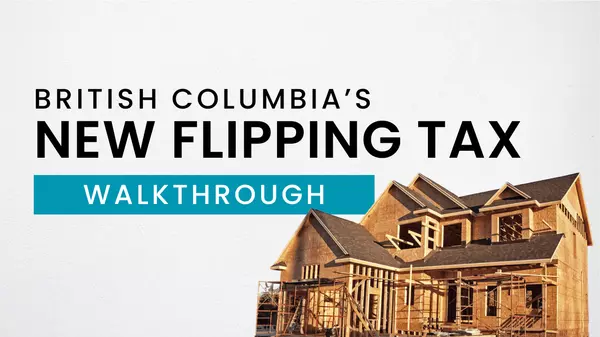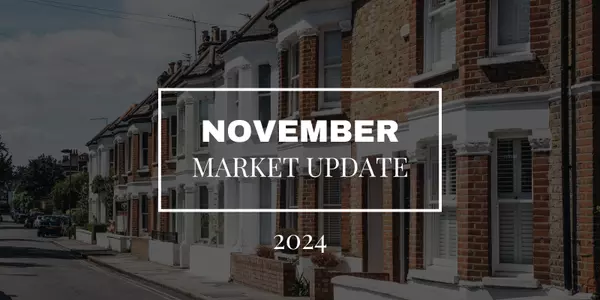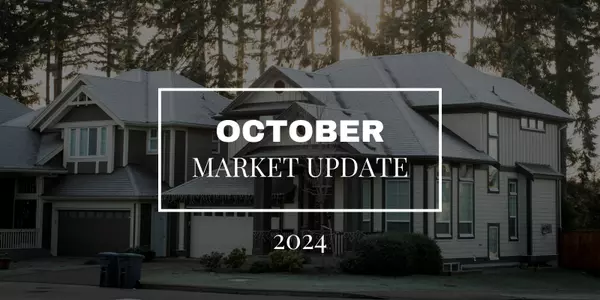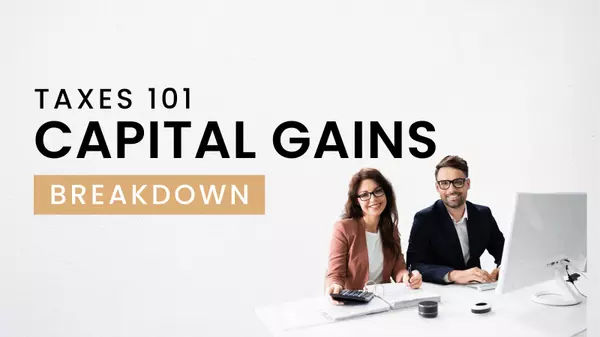BC’s New Home Flipping Tax: The latest update
 BC's Newest Tax Policy Is Coming For Your Profits
BC's Newest Tax Policy Is Coming For Your Profits
In an effort to curb real estate speculation and support housing affordability, British Columbia has introduced the BC Home Flipping Tax. This new tax, effective January 1, 2025, applies to profits earned from selling residential properties held for less than 730 days. This post will provide a detailed overview of the tax, key exemptions, and how it may impact homeowners, investors, and developers across the province.
Understanding the BC Home Flipping Tax
The BC Home Flipping Tax is part of the provincial government's Homes for People Plan, designed to address housing affordability. The tax targets short-term property sales, aiming to deter individuals or entities from buying and quickly selling homes for profit.
Key Details
-
Effective Date: January 1, 2025
-
Applicable Period: Properties held for fewer than 730 days
-
Tax Rate: 20% of net taxable profit if the property is sold within 365 days, gradually decreasing over the next 365 days
-
Taxable Properties: Residential homes, pre-sale contracts, and properties zoned for residential use
Who Is Subject to the Tax?
The tax applies to individuals, corporations, partnerships, or trusts, regardless of residency. For example, if you purchased a property in BC on May 1, 2023, and sold it on January 31, 2025 (642 days), the profit is subject to the BC Home Flipping Tax.
Important Exemptions
Certain circumstances may exempt property owners from the tax. These include:
-
Death of the property owner or related person
-
Significant life events, such as job relocation, divorce, or health emergencies
-
Primary Residence Deduction: If you lived in the property as your primary residence for at least 365 consecutive days, you may be eligible for a deduction of up to $20,000 from the taxable income.
Example: Sam owned his house for 20 months and lived in it as his primary residence. Since he met the 365-day requirement, he qualifies for the deduction.
However, pre-sale contract assignments are not eligible for the primary residence deduction.
Exempt Property Transactions
The tax does not apply to transactions that do not transfer beneficial ownership, such as:
-
Deemed dispositions under the federal Income Tax Act
-
Mortgages, liens, or charges
-
Leases
-
Gifts
For example, if you gift a property to a family member, this transaction does not trigger the BC Home Flipping Tax.
Days of Ownership: Key Considerations
To determine if the tax applies, the holding period starts from the day you take legal ownership (closing date) to the day you sell.
Special Rules for Pre-Sale Contracts
-
The ownership period starts on the date you sign the contract and pay the deposit.
-
If you assign your right to a pre-sale before completion, the date of the assignment is used to determine the tax eligibility.
Related Party Transactions
If a property is purchased from a related party, the ownership period can be "inherited" from the previous owner.
Example: Michael buys a property from his father, who originally purchased it in 2020. Michael is deemed to have purchased the property in 2020 for tax purposes, potentially exempting him from the BC Home Flipping Tax.
How the Tax is Calculated
The tax is calculated based on the net taxable income from the sale. Here’s how it works:
-
Determine the number of days the property was owned.
-
Apply the corresponding tax rate (20% for properties sold within 365 days, decreasing thereafter).
-
Subtract eligible deductions, such as the primary residence deduction if applicable.
Example:
-
Purchase Date: May 1, 2023
-
Sale Date: January 31, 2025
-
Days Owned: 642 days
-
Since the ownership is less than 730 days, the profit is taxed at a rate corresponding to the holding period.
Filing a BC Home Flipping Tax Return
Filing a return is mandatory if:
-
You sell a property within 729 days and do not qualify for an automatic exemption.
-
Your exemption requires submission of supporting documentation.
Returns must be filed within 90 days of the sale. Failure to file could result in penalties and interest.
Impact on the Real Estate Market
The BC Home Flipping Tax could lead to:
-
Reduced speculative activity: Potential flippers may reconsider short-term transactions due to higher costs.
-
More stable housing prices: By discouraging quick resales, the government aims to stabilize prices and improve access for long-term buyers.
-
Increased due diligence: Buyers and sellers must carefully assess their timelines to avoid unexpected tax liabilities.
Conclusion: What Homeowners and Investors Should Know
The BC Home Flipping Tax represents a significant change in BC’s real estate landscape. Homeowners should be mindful of the 730-day rule when planning property sales to avoid unexpected tax obligations. Investors must evaluate their strategies, particularly for pre-sale contracts and short-term holdings. Staying informed about exemptions, filing requirements, and potential deductions is essential for navigating this new tax.
For more updates on BC’s real estate regulations, keep an eye on government announcements and consult with real estate professionals.
Disclaimer: The information provided is for general informational purposes only and should not be considered financial or legal advice. Consult a professional for guidance tailored to your specific situation.
Recent Posts

